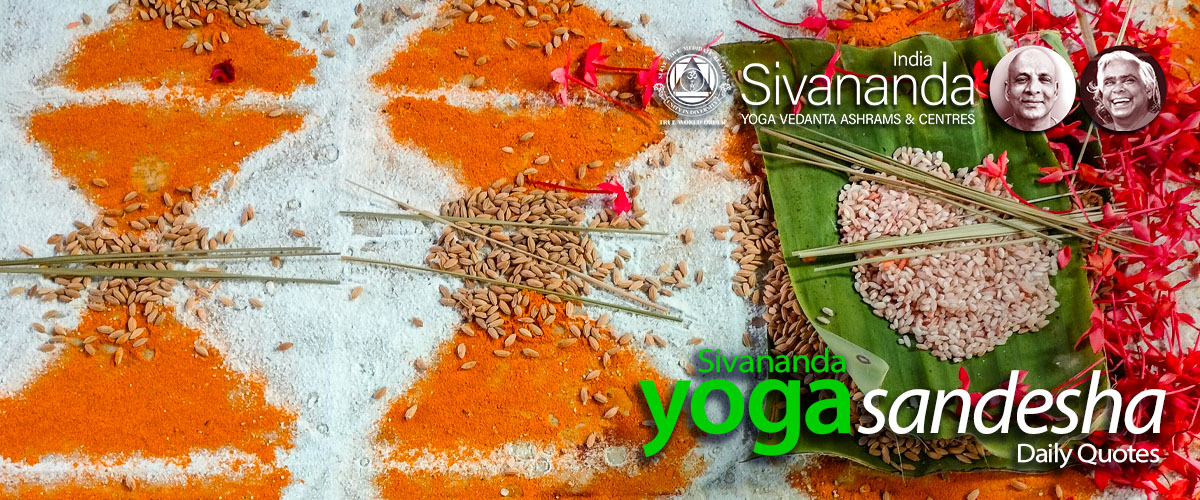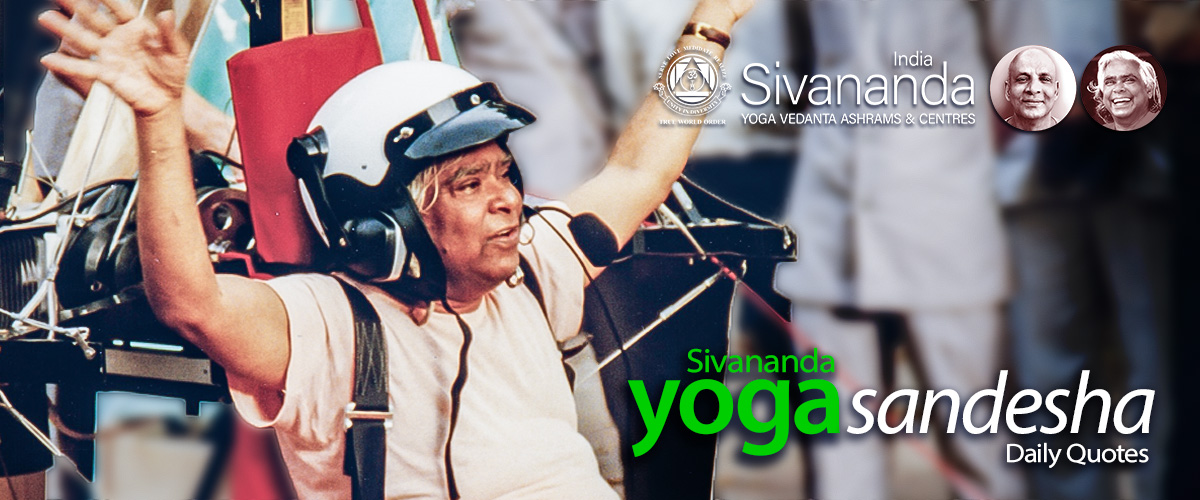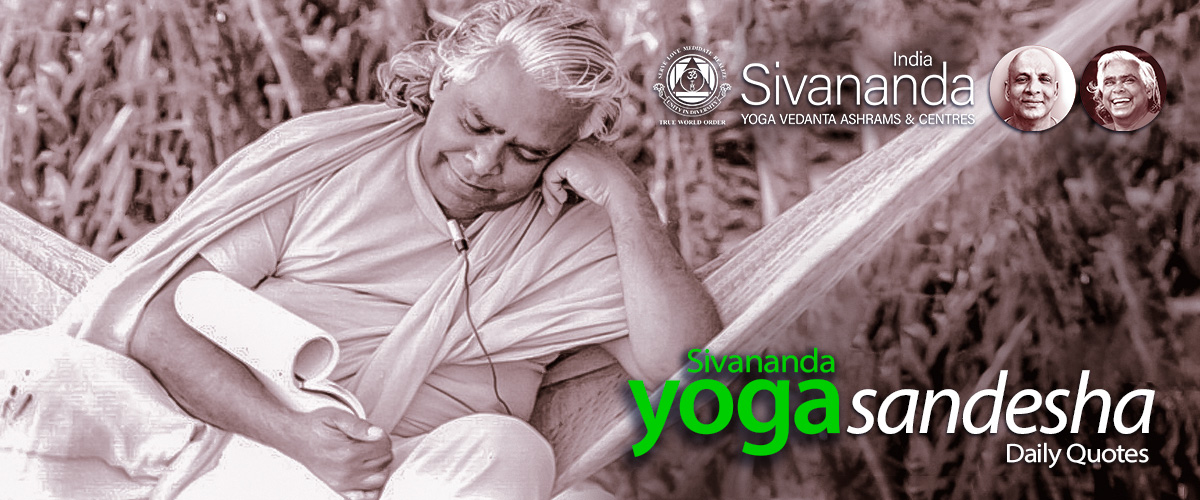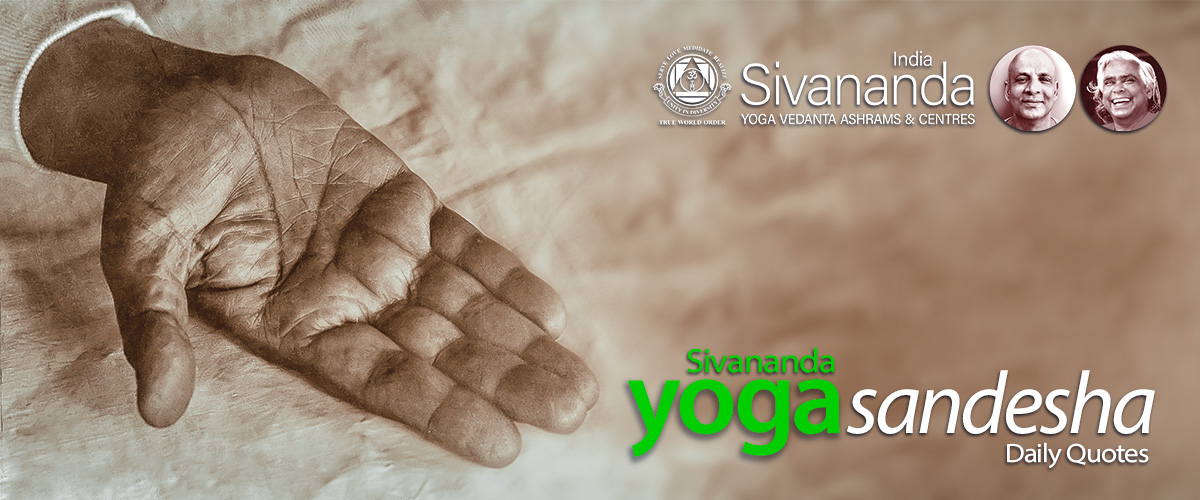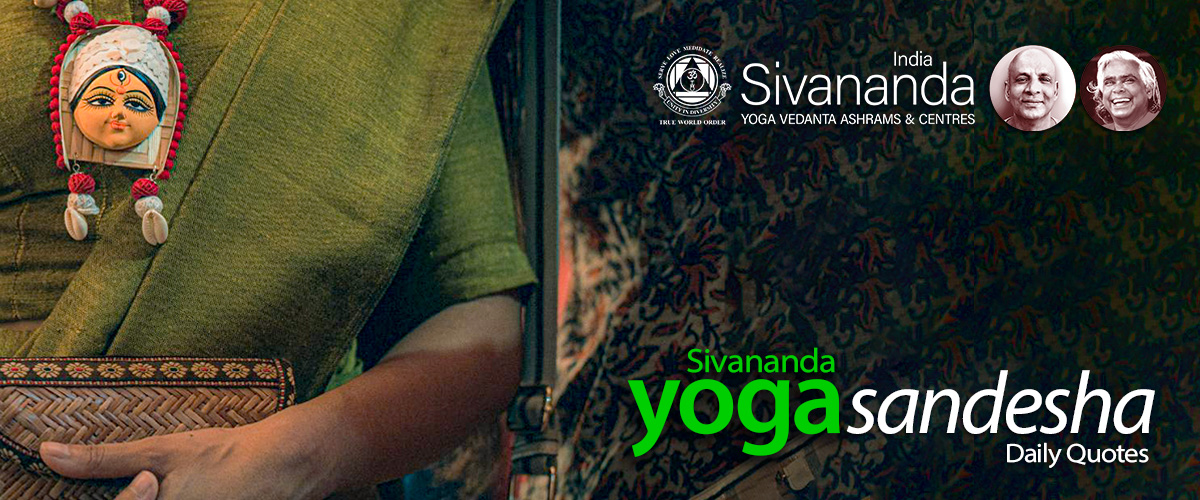Subscribe to receive teachings from the ancient scriptures as well as the books of Swami Sivananda and Swami Vishnudevananda.
Inspiration sent to your inbox 5 days a week! See the tabs below for an example of these teachings.
Monday Motivations
Inspirational quotes and teachings from Swami Sivananda
Ayurveda medicine teaches us to adopt it’s basic principles of self control to prevent disease.
Allopathic medicine and Ayurveda medicine should be integrated in tandem into our lives, working side by side, to provide short term and long term solutions to our health.
From the book Practice of Ayurveda – Swami Sivananda
Bhagavad Gita
Chapter 16 – The Yoga of the Division Between the Divine and the Demoniacal
XVI.22. Etairvimuktah kaunteya tamodwaaraistribhirnarah; Aacharatyaatmanah shreyas tato yaati paraam gatim
XVI.22. A person who is liberated from the three gates to darkness, practices what is good for them and thus goes to the Supreme goal
COMMENTARY: When the three gates to hell – lust, anger, and greed – are abandoned by the aspirant, the path to salvation is cleared. The aspirant then receives the company of sages, receives spiritual instructions and practices them. The aspirant hears the scriptures, reflects, meditates and attains Self Realisation and liberation.
This excerpt is from The Bhagavad Gita, commentary by Swami Sivananda
Wednesday Wisdom
Teachings, quotes, Q&A and parables from Swami Sivananda
Parable Of The Gardener And The Shepherd
A gardener was proceeding towards his master’s house one morning, with a flower pot on his head. In the flower pot was a beautiful green plant, for growing which the gardener had taken immense pains. On the way he met his friend, the shepherd, who was going to his house with a sheep slung on his shoulders. The gardener had not met the shepherd for some time. He greeted the shepherd with a big smile and the two began to talk. When the exchange of news came to an end, they went their way. The gardener arrived to master’s house and took a look at the plant, before he entered the house. He lowered the pot from his head. To his horror, he discovered that there was not a leaf left in it, and that it was all but a naked stem. The sheep which his friend had around his shoulders had eaten away all the leaves while he was busy talking to him. How could he enter his master’s house without the plant? He, therefore, returned to his garden, sorely disappointed.
A Sadhaka cultivates divine virtues in the garden of their heart. They struggle hard and exert much in order to cultivate even a single virtue. The virtue is a passport for them to enter the Master’s House, the Kingdom of God. The Sadhaka carries the pot of virtues, as it were, while proceeding to the Kingdom of God. But during their journey of life here, they meet a ‘friend’, who may carry the eater of virtue, viz., vice. Contact with this friend seems to be amusing to the person of virtue. But this is costly friendship. Very soon, the virtuous person discovers that the company of the ‘friend’ has denuded his virtues and therefore lost the passport to the kingdom of God. The Sadhaka has to return to this world of pain and death, sorely disappointed.
Beware of wrong company. Attend Satsanga. You will be spiritually elevated.
~ From the book Parables of Sivananda by Swami Sivananda
Thoughtful Thursday
Teachings on thought disciplines, thought power, thought vibrations
Our Face is a Mirror
Whatever we are thinking is immediately written on our face.
The face is the index of the mind. The face is the mould of the mind. Every thought cuts a groove in our face. From the nature of the lines or expression on our face, others can at once read our state of mind.
An evil thought darkens the face and aura. A divine thought brightens the face and even the aura. Continued divine thoughts increase our aura, our halo.
~ From the book Thought Power by Swami Sivananda
Raja Yoga Sutra
Summary of Chapter 4 – Liberation
The final chapter of Patanjali’s Raja Yoga Sutras discusses Kaivalya – liberation, independence. Kaivalya means freedom from bondage, attachments and worldly desires while transitioning to independence from the worldly cycle of birth and death. The full-blown yogi develops perfect discrimination – the ability to distinguish the Real from the unreal. The yogi is no longer addicted to the three gunas of nature and can distinguish Purusha from Prakriti.
From the book Meditation and Mantras by Swami Vishnudevananda

